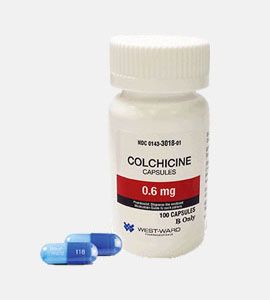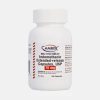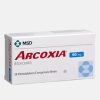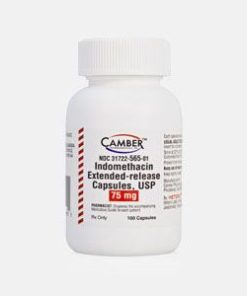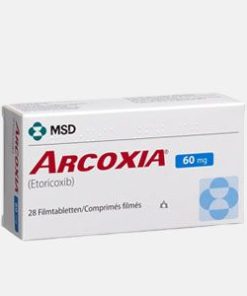Colchicine
Commercial Name: Colchicine
Active Ingredient: Colchicine
Utilization: Used for treating and preventing pain associated with gouty arthritis
Available Dosages: 0.5mg
Now go add some variable products!
General description:
Colchicine
is an alkaloid drug obtained from the autumn crocus plant (colchicum autumnale), which is used to treat or prevent gout
attacks and FMF ( familial medditerannean fever). It is by no means a
painkiller and should not be used to treat other causes of pain. Colchicine is
classified as an anti-gout agent, which works by decreasing the natural process
of swelling and lessening the accumulation of uric acid crystals that result in
pain in the affected joints.
Each capsule
consists of 0.6mg Colchicine and inactive ingredients listed below:
● Lactose anhydrous
● Silicon dioxide
● Magnesium stearate
● Sodium starch glycolate
● Microcrystalline cellulose
The
ingredients making up the capsule shell are
gelation, titanium dioxide, purified water, erythrosine, Quinoline
yellow and Blue FCF.
The drug
should be stored 20-25°C and protected from sunlight and moisture.
Pharmacokinetics:
Colchicine
is effective in treating gout due to its capability to block
neutrophil-mediated inflammatory responses caused by monosodium urate crystals.
The drug disrupts the polymerization of beta-tubulin into microtubules,
therefore inhibiting the activation, degranulation and migration of neutrophils
into the sites of infection.
The
mean Cmax of the drug when given to healthy adults is 3ng/mL after single 0.6mg
dose oral administration. Cytochrome P450 3A4 metabolises 16% of colchicine to
2- and 3- demethyl colchicine. The drug distribution is known to range between
5 to 8 L/kg.
Directions for use:
Before
taking this drug, you should consult your doctor for an adjusted optimal
dosage.
If
you are prescribed colchicine to treat gout flares, the recommended dose will
be 1.2 mg immediately after the attack, followed by 0.6mg an hour later. The
maximum dose that can be taken during a one hour period is 1.8mg.
If
you are being treated for FMF, it is best to take 1.2mg to 2.4mg daily. It is
up to you to take the dose once daily or to divide into portions throughout the
day.
The
drug is administered orally, with or without food.
It
is important to continue taking this medication even after you are feeling
well. Do not stop taking colchicine unless you talk to your doctor.
Side effects:
●
Cramping
●
Nausea
●
Vomiting
●
Diarrhea
●
Muscle pain
●
Numbness
●
Unusual bleeding
●
Purpura, rash
Immediately
consult your doctor if any of the side effects listed above become acute and
unbearable.
Precautions:
●
Before starting on this medication, tell your doctor
if you have had any kidney or liver problems
●
Limit the consumption of alcoholic beverages while
taking this drug
●
Older adults are more exposed to having side effects
such as weakness/numbness
●
Colchicine can result in oligospermia, which can
affect the ability to father a child
●
Unless strongly needed, it is not advised to take
this drug during pregnancy or breast-feeding period
●
DO NOT eat grapefruit
or drink grapefruit juice while taking the drug
●
Consult your doctor if you are going to take this
drug alongside with other medications
Related products
Arthritis
Arthritis

